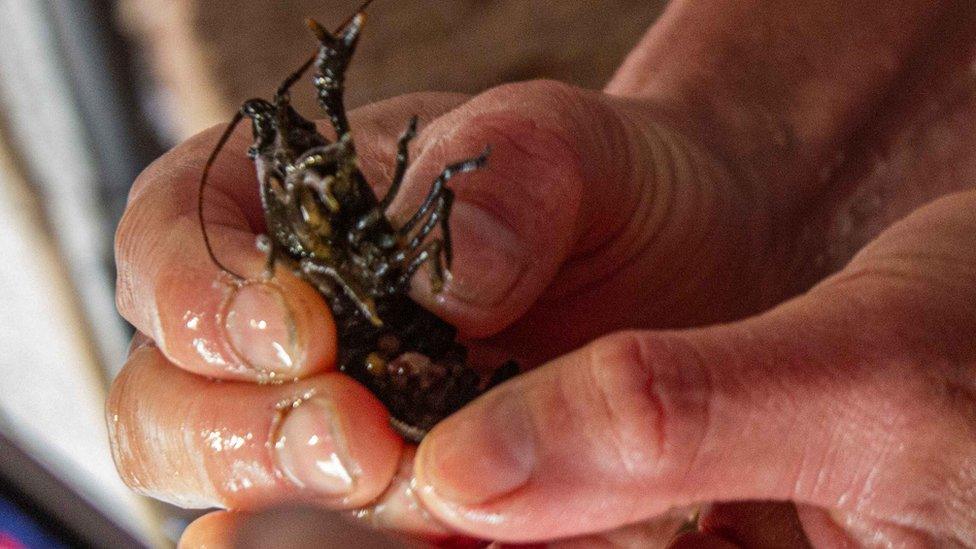Zoo releases endangered crayfish into the wild
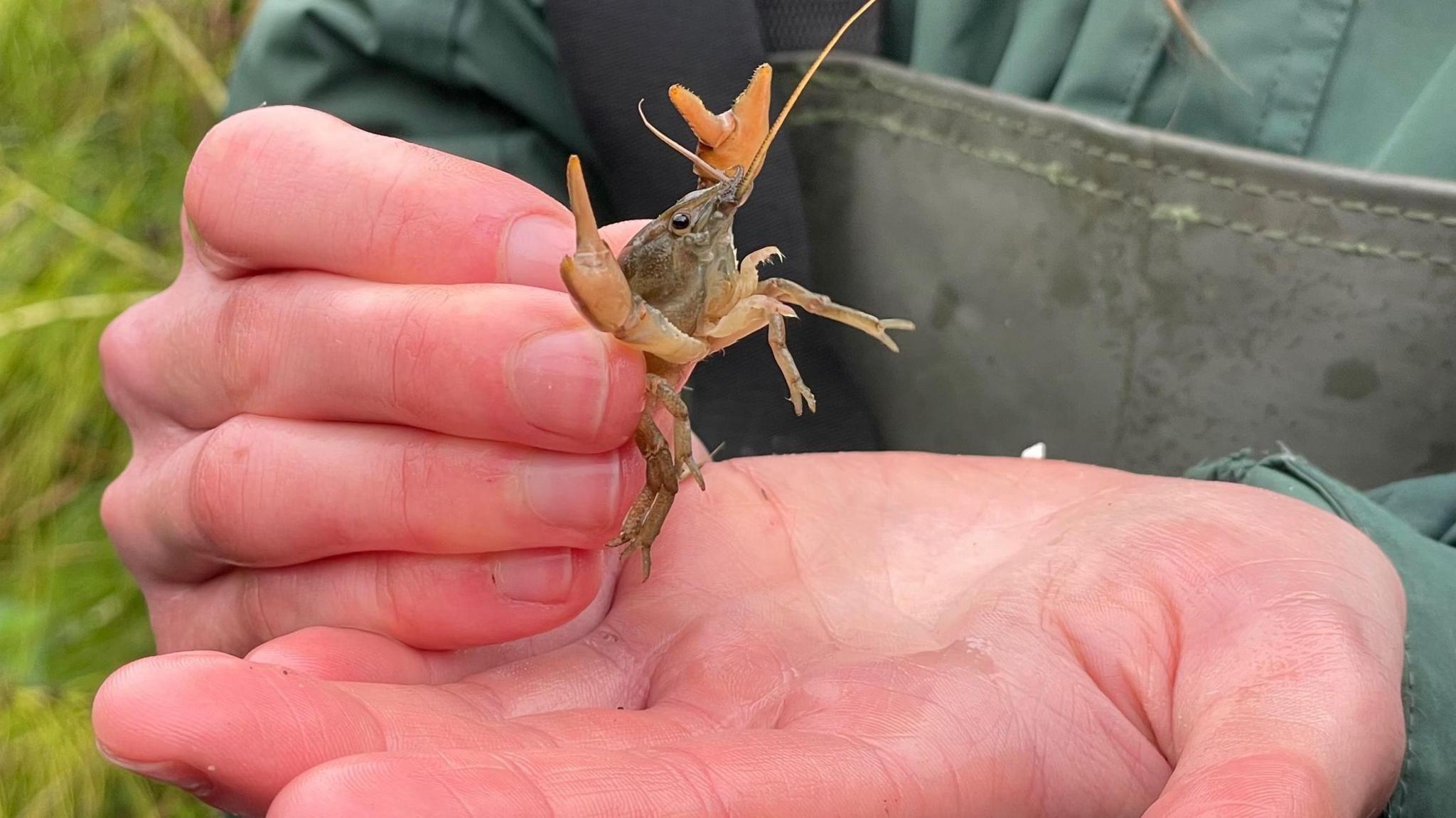
White-clawed crayfish are at a 'high risk' of extinction
- Published
Almost 100 endangered crayfish reared in a special breeding programme have been released into the wild.
The white-clawed crayfish, which hatched last year, were set free at a remote chalk stream in North Norfolk.
The species, which once thrived in British waterways, are now threatened with extinction by pollution, loss of habitat and an invasive species.
A specialist team from the Norfolk Rivers Trust and Banham Zoo will return to the chalk stream in a year's time to check whether the white-clawed crayfish have reproduced.
"It's really emotional, also quite exciting, but very nerve wracking," said Ursula Juta from the Norfolk Rivers Trust.
"You're putting the lives of a species at risk. But we're trying to save the species so you have to do these things."
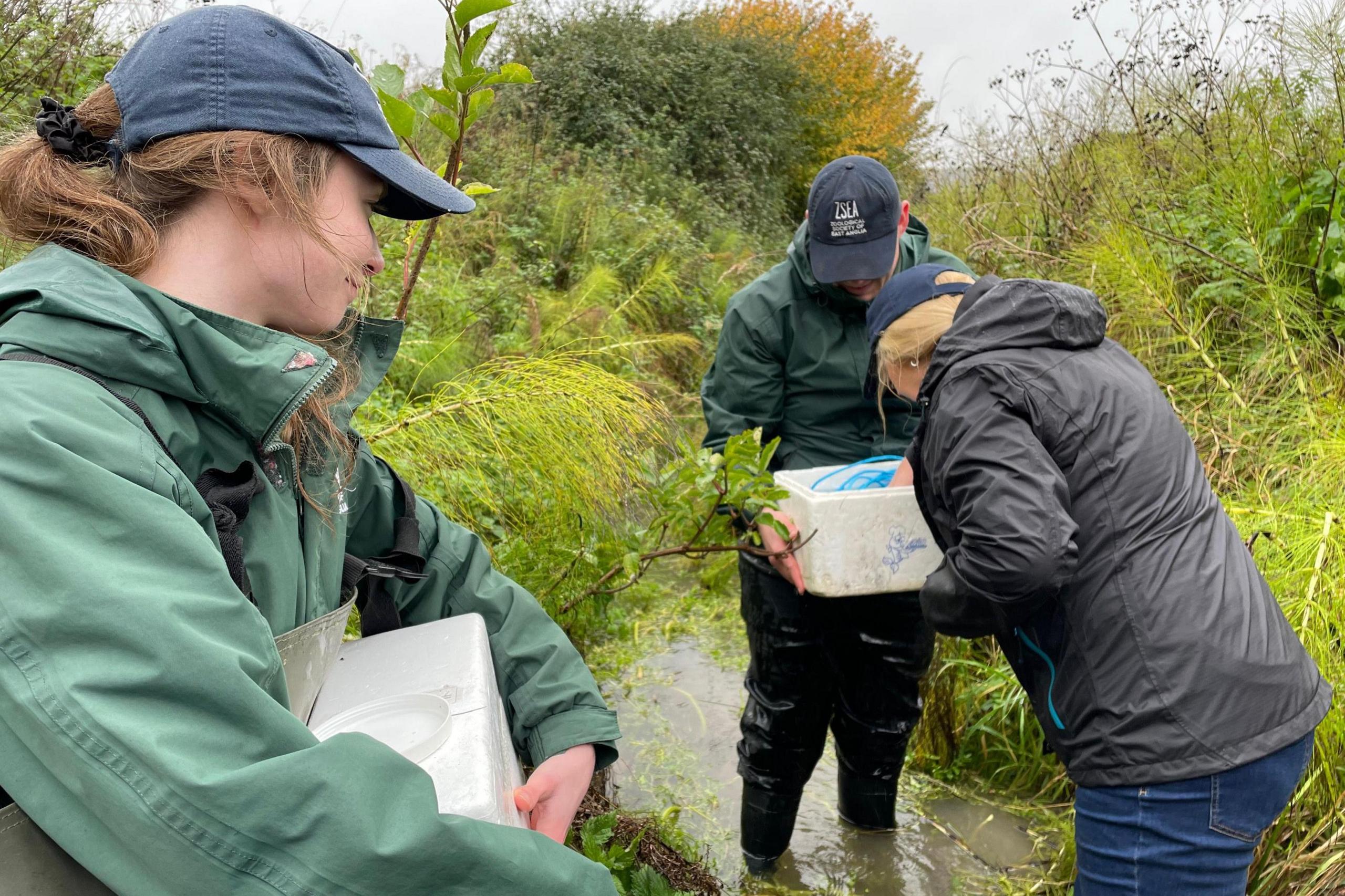
The team ensured the white-clawed crayfish were big enough to survive before being released into the wild
The project, to boost local white-clawed crayfish numbers, took off last year when Banham Zoo, which is run by the Zoological Society of East Anglia (ZSEA), was awarded a £95,300 grant, external from the Government's Green Recovery Challenge Fund.
The zoo, based near Diss, set-up a dedicated hatchery and helped to nurture four female white-clawed crayfish that were carrying eggs.
The hatchery mimicked conditions in the wild and the crayfish soon reproduced.
Dexter Smith, a conservation officer at Banham Zoo, said: "They're really finicky creatures.
"They have to have pristine water qualities so no ammonia, nitrates have to be really low and really high calcium.
"It's taken loads of hard work but it's lovely to see it pay off."
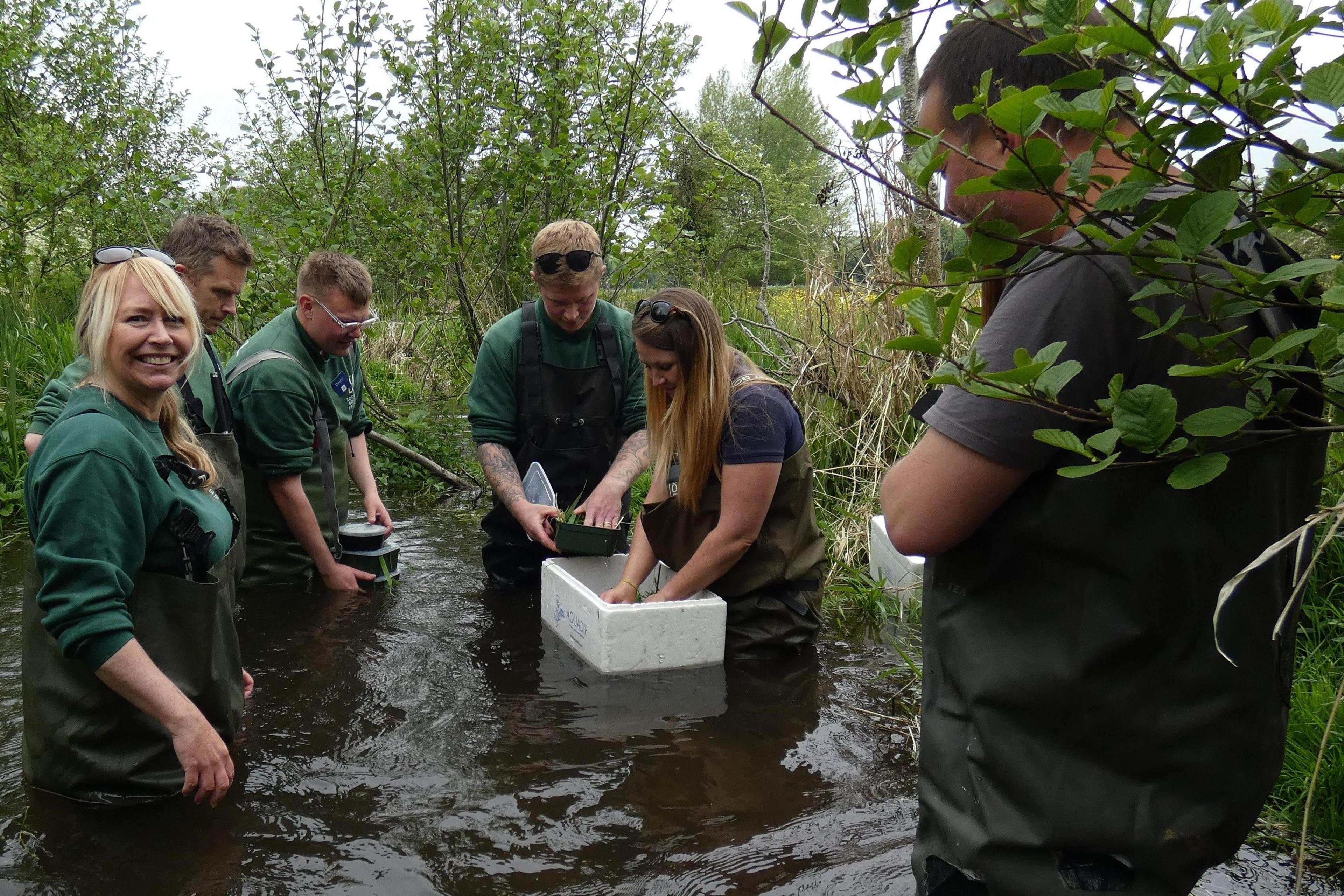
The Zoological Society of East Anglia says only about 5% of young white-clawed crayfish survive in the wild
In Norfolk, there are now eight waterways known to have populations of white-clawed crayfish.
They inhabit shallow waters and live on average for between 8-12 years, external.
The species, which is protected under UK law, is considered by the International Union for Conservation of Nature (IUCN) to be at a high risk of extinction, external.
One reason is the threat posed by the invasive American signal crayfish, external which carries a disease which the native crayfish have no natural resistance to.
Other projects to conserve white-clawed crayfish are underway in places like Devon and Northumberland.
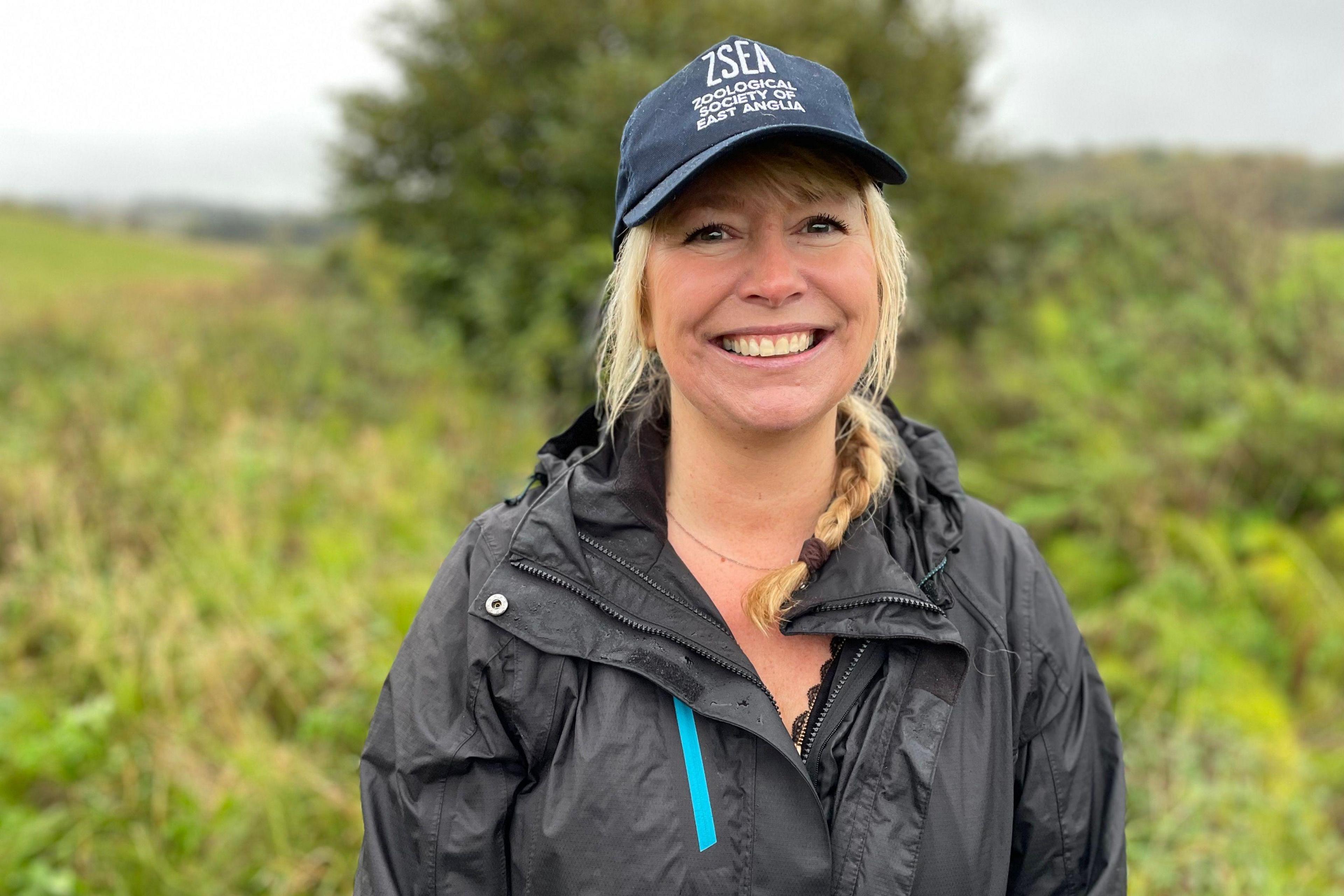
Sarah Lee from the Zoological Society of East Anglia says she hopes the young crayfish will breed over the winter
"We need to cling on to that hope that we can do something really special here," said Sarah Lee, head of conservation at the Zoological Society of East Anglia.
"We've all worked really closely together, so here's to more successful partnerships going forward."
Follow East of England news on Facebook, external, Instagram, external and X, external. Got a story? Email eastofenglandnews@bbc.co.uk, external or WhatsApp us on 0800 169 1830
Related topics
- Published21 September 2022
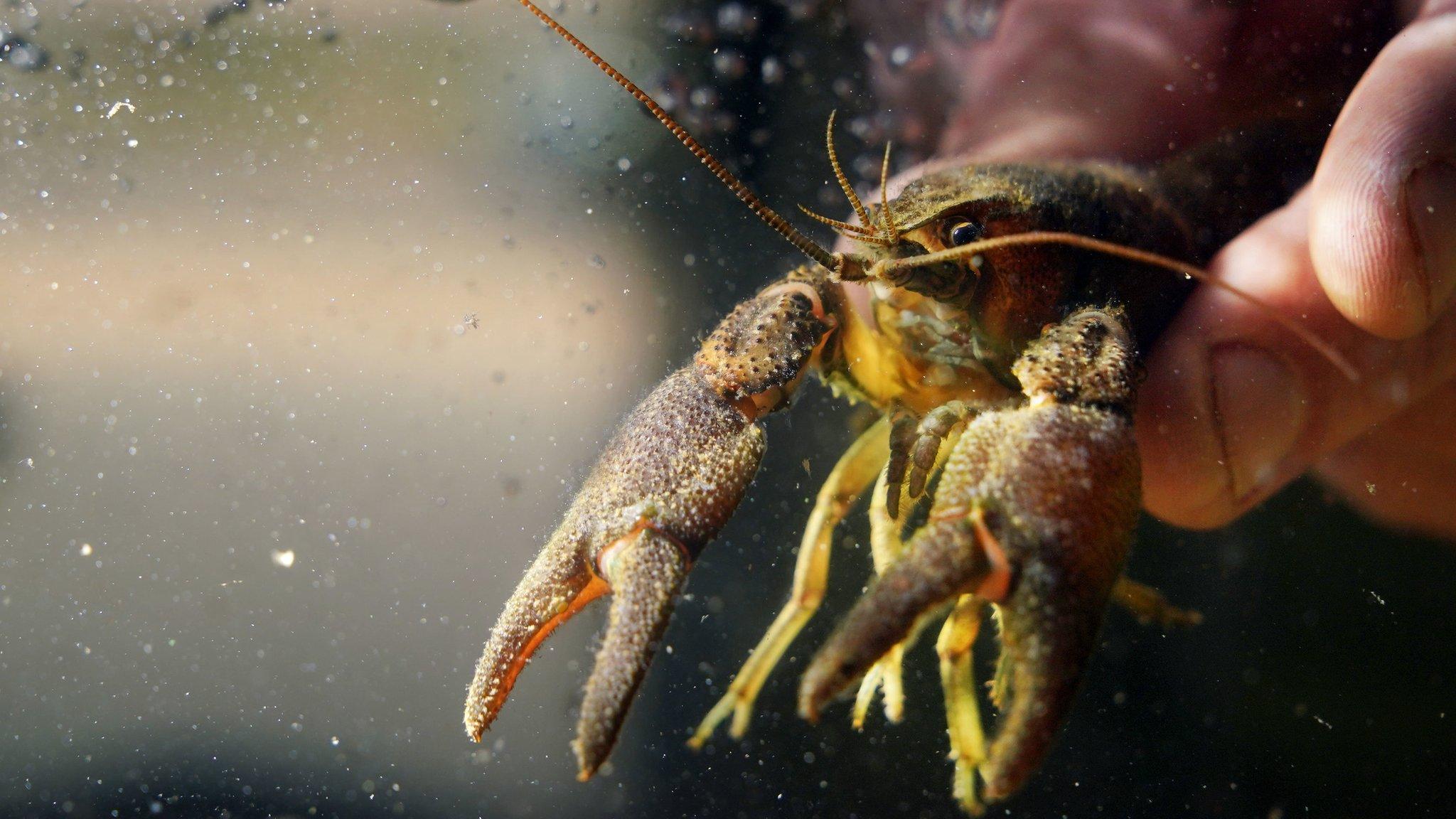
- Published9 June 2023
